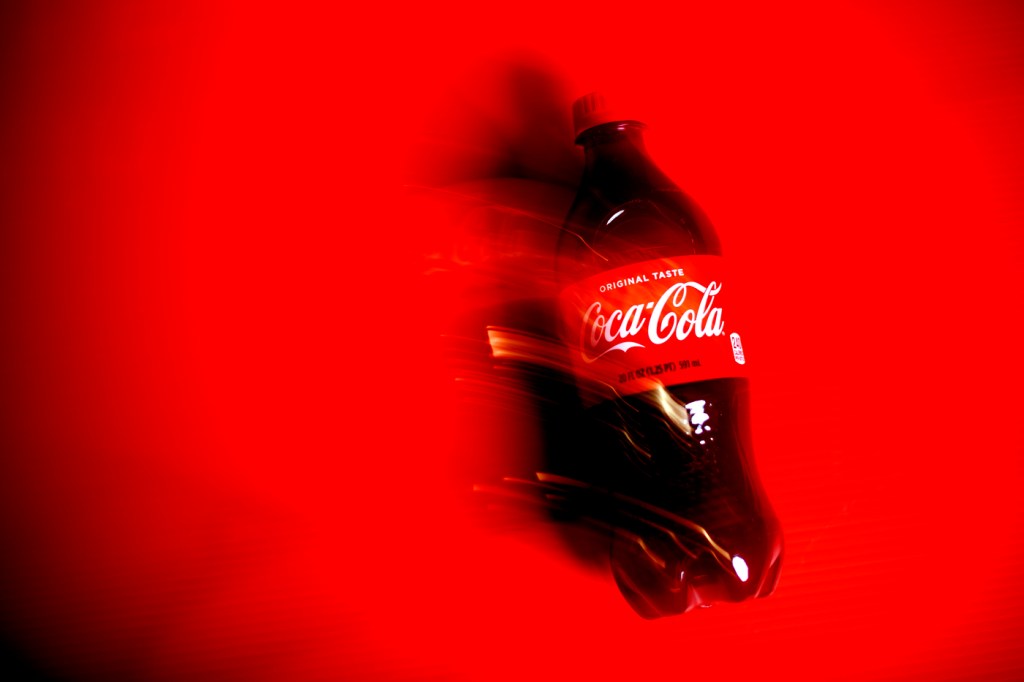Big business uses factual research to mislead the public, Northeastern study finds
Philosopher David Freeborn says independent research is being funded by big business in order to distract the public and policymakers from the potential harms of their products.

LONDON — Even the truth can be manipulated to deliberately mislead us.
That is the argument put forward by Northeastern University philosopher David Freeborn in his latest paper, “Industrial Distraction.”
The assistant professor’s research, due to be published in the Philosophy of Science journal in January, explores when big business, corporations and trade bodies fund and share research that is accurate and high quality, but nonetheless is intended to mislead.
Freeborn, along with his co-author Cailin O’Connor from UC Irvine, give the example of Coca-Cola investing in research that investigated the benefits of exercise to health and its impact on weight and diet-related diseases.
The soft drink giant helped bankroll the Global Energy Balance Network, a U.S.-based non-profit that was criticized for emphasizing the connection between obesity and the lack of physical exercise.
The two philosophers argue that, while Coca-Cola was investing in independent research, the goal was one of “distraction” — to divert the public and policymakers from the idea of sugary drinks and bad diet being a major factor in high obesity levels, and instead shift the blame onto sedentary lifestyles.
The tobacco industry is another sector that has engaged in the practice of industrial distraction, according to Freeborn’s paper, spending “enormous resources sowing doubt about the connection between tobacco and diseases like lung cancer and emphysema.”
The industry “promoted research about alternative causes of lung disease, including asbestos exposure, air pollution, coal smoke and even early marriage,” Freeborn and O’Connor write.
Freeborn, who teaches on Northeastern’s London campus, says the concept of industrial distraction calls into question how misinformation should be defined.
“There is this issue that people usually think of misinformation as something that is false — disinformation that is deliberately false,” he says.
“What we were interested in is this idea that sometimes you can have misleading content. It can be scientifically rigorous, it can be done by good scientists following all the principles of good scientific practice — and yet it can still be misleading. So in that sense, it kind of blurs the boundaries of what counts as misinformation.”
And with different industries looking to protect their own interests, the result is competing and counteracting research that can make it confusing for consumers to decide how best to protect their own health, Freeborn outlines.
“The case of sugar is interesting because you had Coca-Cola, through the Global Energy Balance Network, trying to fund research into lifestyle factors [being a cause of obesity],” Freeborn says.
“You also had the dairy industry — the butter and the egg industry in Britain — trying to fund research suggesting sugar is the main force of obesity. So you had different industry groups that were funding selective research, in each case trying to push a particular agenda, and the result was just confusion and distraction, which made it very unclear.”
Featured Posts
Freeborn also puts forward the argument that some examples of industrial distraction go much further than simply attempting to sow confusion. The tobacco industry’s funding of asbestos research did have the “good effect” of “increasing our understanding of the harms of asbestos,” he says, but it was done with the full knowledge that tobacco itself could cause lung cancer and other illnesses.
“The tobacco industry knew about the research showing the dangers of tobacco,” Freeborn adds, “but still they were funding other sources, knowing that this would distract people. I think that is a genuine case of outright deceit.”
The paper puts forward guardrails for protecting the public against industrial distraction, including having industry funding for research allocated through a lottery system and companies having to declare the harms that their products cause when publicizing the results of science that they financially support.
But Freeborn acknowledges that there is no perfect solution while scientific research continues to rely on funding from industries.
“I don’t think we want to say that any of these solutions are going to be a panacea that is going to completely fix this because it is a deeply entrenched issue,” he continues.
“It is hard to identify because it is, in many cases, legitimate research. And it is hard to tackle without throwing away industry funding of research altogether which, unless we get to a place where all research is publicly funded — which is not where we are at — then that is not going to happen, and many areas of science do need industrial research.”












